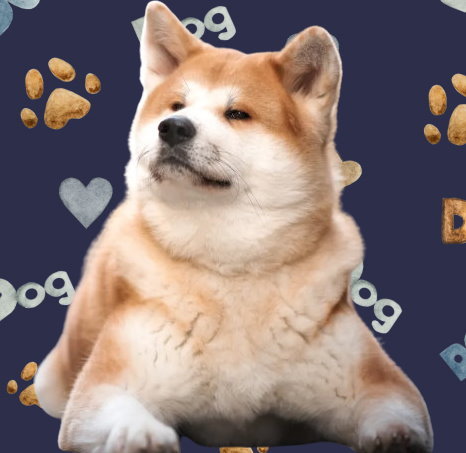Welcome to Dog Training Newbies !
Welcome to Dog Training Newbies !

Poodles are known for their intelligence, elegance, and affectionate nature. Whether they are Toy, Miniature, or Standard Poodles, these dogs are highly social and form strong bonds with their owners. However, this close attachment can sometimes lead to separation anxiety—a condition in which a dog experiences extreme distress when left alone. Separation anxiety is a common issue in Poodles, but with understanding, patience, and the right strategies, it can be managed effectively.
UNDERSTANDING SEPARATION ANXIETY IN POODLES
Separation anxiety in dogs is characterized by behaviors that occur only when the dog is left alone or when the owner is not present. Common signs include excessive barking, howling, destructive chewing, digging, pacing, and even attempts to escape. In severe cases, a dog may refuse to eat or drink while alone and may exhibit signs of depression or stress when the owner is preparing to leave.
The causes of separation anxiety in Poodles are multifaceted. One of the primary factors is the breed’s natural tendency to form close bonds with their human companions. Poodles are highly social animals and thrive on interaction with their families. When they are suddenly left alone, they may feel abandoned or insecure, leading to anxiety.
Changes in routine or environment can also trigger separation anxiety in Poodles. Moving to a new home, a change in the owner's work schedule, or even the addition or loss of a family member or pet can unsettle a Poodle and contribute to anxiety. Additionally, Poodles that have experienced abandonment or have been rehomed multiple times may be more prone to developing separation anxiety.
It’s important to distinguish between separation anxiety and normal dog behavior. All dogs may feel some level of distress when left alone, especially if they are not used to it. However, separation anxiety is a more intense and persistent condition that requires intervention.
SOLUTIONS FOR MANAGING SEPARATION ANXIETY
Addressing separation anxiety in Poodles involves a combination of behavior modification, training, and, in some cases, medical intervention. The goal is to help your dog feel secure and confident when left alone.
Gradual Desensitization: One of the most effective strategies for managing separation anxiety is gradual desensitization. This process involves slowly getting your Poodle accustomed to being alone. Start by leaving your dog alone for very short periods—just a few minutes—and gradually increase the time as your dog becomes more comfortable. During this process, it’s important to remain calm and avoid making a big deal out of leaving or returning home. Over time, your Poodle will learn that being alone is not something to fear.
Create a Safe Space: Providing a safe and comfortable environment for your Poodle while you’re away can help reduce anxiety. Designate a specific area in your home where your dog can feel secure. This could be a crate, a specific room, or a gated-off area with their favorite toys, bedding, and access to water. Some dogs find comfort in being in a smaller, enclosed space, which can make them feel more secure.
Counter-Conditioning: Counter-conditioning involves changing your Poodle’s emotional response to being alone. You can do this by associating your departure with something positive, such as a special treat or a favorite toy that your dog only gets when you leave. Over time, your dog will start to associate your absence with something enjoyable, which can help reduce anxiety.


Exercise and Mental Stimulation: Providing your Poodle with plenty of physical exercise and mental stimulation can help reduce separation anxiety. A tired dog is less likely to feel anxious and more likely to rest while you’re away. Make sure to give your Poodle a good walk or play session before you leave. Puzzle toys, treat-dispensing toys, and interactive games can also help keep your dog occupied and mentally stimulated while you’re gone.
Training and Routine: Establishing a consistent routine can help your Poodle feel more secure. Dogs thrive on routine, and knowing what to expect can help reduce anxiety. Set regular times for feeding, walks, play, and rest. Additionally, practice short absences as part of your routine, so your dog learns that you always come back.
Calming Aids: There are various products available that can help calm an anxious dog. These include pheromone diffusers, calming collars, and anxiety wraps like the Thundershirt. These products can provide comfort and reduce anxiety in some dogs. Additionally, some dogs benefit from calming supplements or medications prescribed by a veterinarian, especially in severe cases of separation anxiety.
Professional Help: In cases where separation anxiety is severe or does not improve with home-based strategies, it may be necessary to consult a professional dog trainer or a veterinary behaviorist. These experts can provide customized training plans and may recommend behavior modification techniques or medications to help manage your Poodle’s anxiety.
LONG-TERM CONSIDERATIONS
Managing separation anxiety in Poodles is a long-term commitment that requires patience and consistency. Progress may be slow, and it’s important to remain calm and supportive throughout the process. Celebrate small victories and continue to reinforce positive behaviors.
Preventing separation anxiety from developing in the first place is ideal. Early socialization, training, and gradually getting your Poodle used to being alone can go a long way in preventing anxiety issues. Ensuring that your dog has plenty of positive experiences and feels secure in their environment will help them grow into a confident and well-adjusted companion.
In conclusion, while separation anxiety in Poodles can be challenging, it is manageable with the right approach. By understanding the causes, providing a safe environment, and implementing effective training strategies, you can help your Poodle feel more secure and comfortable when left alone, leading to a happier and more balanced life.